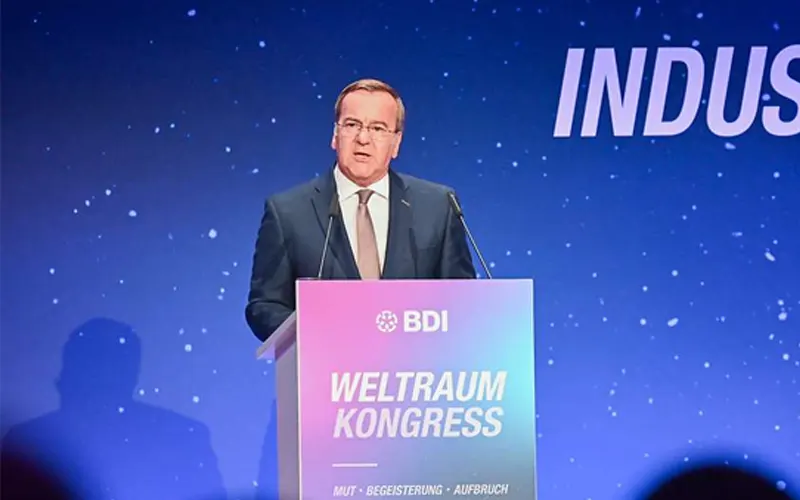 Credit: BDI / Christian Kruppa
Credit: BDI / Christian Kruppa
During his address at Germany’s third annual Space Congress, Defence Minister Boris Pistorius announced that Germany would invest €35 billion in space-related defence projects by 2030.
“The conflicts of the future will no longer be limited to the Earth’s surface or the deep sea. They will also be fought openly in orbit,” said Pistorius. “That’s why we are building structures within the Bundeswehr to enable us to effectively defend and deter [threats] in space in the medium and long term.”
According to a 25 September Bundeswehr (German Armed Forces) release published following the minister’s address, the €35 billion investment will cover five main priorities: hardening against data disruptions and attacks, improved space situational awareness, redundancy through several networked satellite constellations, secure, diverse, and on-demand launch capabilities, and a dedicated military satellite operations centre.
In practical terms, several beneficiaries of this increase in defence spending are apparent. While Germany’s heavy-lift needs will continue to be met by Ariane 6, a programme to which the country contributes heavily, domestic small-launch providers such as Rocket Factory Augsburg, Isar Aerospace, and HyImpulse are likely to see a boost in support. The funding may also benefit the German Offshore Spaceport Alliance, which is developing a floating platform to be positioned off the German coast to launch small rockets.
Another clear beneficiary will be the country’s satellite manufacturing industry. In his address, Pistorius explained that the country’s Armed Forces “plan to acquire new satellite constellations for early warning, reconnaissance, and communications.” He went on to explain that while startups and NewSpace companies would play a part, “market-available solutions” offered an obvious shortcut to the rapid development of capabilities.
These remarks had a direct impact on OHB’s fortunes. The Bremen-based satellite manufacturer, which was founded in 1981, has already built the SAR-Lupe and SARah reconnaissance constellations for the country’s Armed Forces, making it a logical candidate to develop new military constellations. The market appeared to share this view, with the company’s shares jumping more than 30% following the announcement.
In addition to outlining the threat and the country’s proposed solution, Pistorius called for wider cooperation, both within Germany and across Europe.
“We are investing in protection, in resilience, in innovation. But we can’t do it alone,” said the minister. “Let us work together to ensure that Germany and Europe remain strong and secure in space.”
